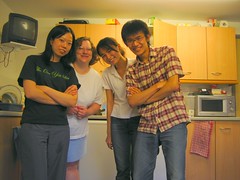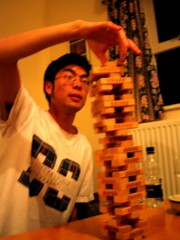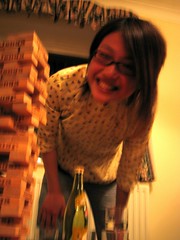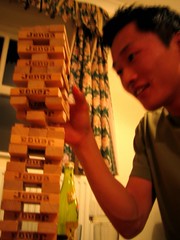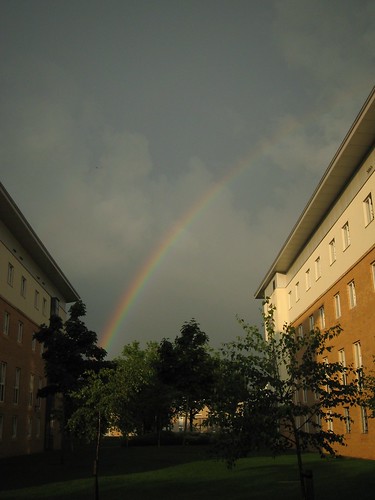I want to write what I get to learn from one of my Japanese friends here. He is a sort of matured student who has presumably several years of working experience before coming here to embark on his Ph.D. I haven't got a real chance to talk with him so far, but today, I happened to have some conversatoin with him and other friends over lunch. Thanks partly to my current obsession with my future career, our daily conversation somehow shifted to his job-experience.
I was impressed with his casual way of talking and clarity of his expression. What he talked about the topic was insightful. Probably it takes some time for me to digest what I got to listen to today. So let me pick up a set of questions he raised:
If you want to work for companies not with some sense of moral surrender, but with conscience and dignity, then think this carefully: who your customers are, who pay the money for you, whose benefit you are serving for; and who is going to lose when you gain.
(This of course is not his words; it's my opinion based on it)
These questions can, I think, reveal some serious aspect of working. Most obvious examples are when you work for a construction company or a research firm, and your business has something to do with, say, the government or developing countries. In these cases, you might assist to impoverish citizens and/or those in developing countries while your business is officially meant to serve for them. This is because you are
work for the government and yet
paid by the taxes derived from citizens. What the government asks you to do, for this reason, can be a downright waste of money, far away from common-sense way of using taxes.
Clearly, you are generally not in a position to say anything critical about such wasting of money, because your immediate customer is not tax payers, but the governmental organization. Even worse, you need to satisfy the customer's expectation because there are usually rival firms you have to compete with to serve its interest. In the simplest term, therefore, my friend told me 'working in a research company, whose job it is to serve a particular governmental institution, is often surprisingly boring.' It is, he implied, simply because your job is to reach some particular conclusions which the governmental institution want to hear from "third party" analyses.
Even so, I do not want to imply that working with government is always "dirtying" our hands with some corruptions or wasting of taxes. Put another way, I don't think avoiding such a job isn't always the only reasonable way. I'd rather believe it is not impossible to retain our sense of justice, moral dignity, or whatever we call it, while plunging into jobs of that kind. (Talking about such possibilities would require another entry)
The point I want to make at the moment is just that the questions he raised can be one of the useful ways in which to evaluate jobs in job-hunting. At the same time, they would help people working in companies to be aware of what it means to work in this or that particular companies.
In our conversation, I did not ask why he chose to study here, instead of continuing his career in a research firm he once worked for. It's impertinent to ask such a thing. But the clarity and the impact of his words make me speculate the link among his job-experience, the questions he raised, and his decision to study abroad. His words might well have come from his lived experience, the dilemma that he might have faced when he came to ask himself such questions, working in the company.
